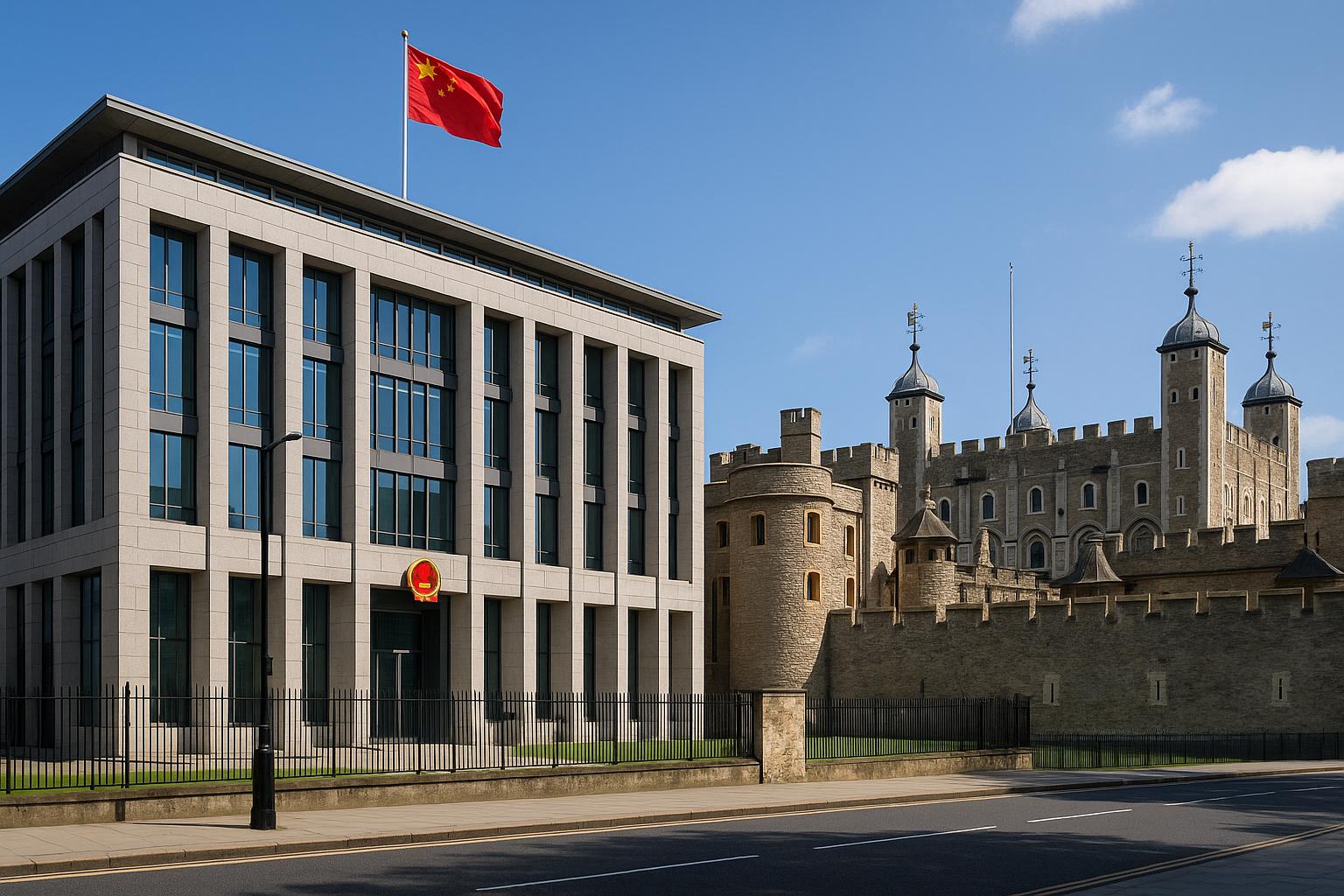Chinese state security officials are set to conduct passport checks on visitors wishing to tour the ruins of St Mary Graces, an ancient Cistercian Abbey located within the boundaries of a proposed Chinese 'super-embassy' site in the City of London. According to a report by The Mail on Sunday, this arrangement has been approved by the UK Foreign and Home Office, despite the heritage site's deep historical significance and its status as British property since 1350, having been endowed by King Edward III. The development project, centered on the site of the old Royal Mint, aims to establish what would become the largest Chinese embassy in Europe, accommodating over 200 diplomats and intelligence officers.
The decision to allow Chinese security measures to extend to a British heritage site is emblematic of broader tensions surrounding the proposed embassy. Critics, including Luke de Pulford of the Inter-Parliamentary Alliance on China, have expressed alarm that parts of UK soil could effectively fall under Chinese jurisdiction, raising concerns about freedom of access and security for those critical of the Chinese regime. Former Tory leader Iain Duncan Smith castigated the Labour government, accusing it of succumbing to Beijing’s coercion and compromising national sovereignty in what he described as a "grotesque compromise."
The embassy plan has faced significant opposition from local residents, intelligence agencies, and Parliamentarians, particularly over fears that the embassy would act as a hub for espionage activities given its proximity to London's financial centres and sensitive infrastructure such as a fibre optic communications tunnel beneath the Thames. The Bank of England has reportedly warned about the security risks posed by the location, which is within the "ring of steel" security zone around key financial districts.
The approval process has been fraught with controversy and delays. The planning application was originally rejected by the local council in 2022, but the UK central government took over the decision. Beijing’s reluctance to disclose full internal layout details of the embassy, citing security concerns, led to a postponement of the ruling deadline from September to December 10, 2025, as confirmed by UK government sources. China has strongly criticized these delays, accusing the UK of politicising the process, especially in the wake of a failed British espionage trial involving alleged Chinese spies, further straining diplomatic relations.
Legal scrutiny has added another layer of complexity. A legal opinion commissioned by opposition residents concluded that if UK ministers, including Prime Minister Keir Starmer or his team, gave Beijing tacit assurances about the project's approval before a final ruling, it could render the decision unlawful due to 'predetermination.' This legal concern arises amid reports that the embassy proposal was revived soon after Labour won the last general election, with President Xi Jinping raising the matter directly with Chancellor Rachel Reeves and Prime Minister Starmer, who subsequently "called in" the planning application for direct government control.
Despite opposition, several British ministers have hinted at conditional support for the embassy project, stressing the importance of diplomatic relations with China while seeking concessions such as China limiting diplomatic accreditation to the embassy site only. This reflects a cautious attempt by Labour to restore and strengthen UK-China ties after a period of more adversarial engagement under the previous Conservative government. Starmer’s approach, showcased in his 2024 meeting with Xi Jinping at the G20 summit, emphasises "consistent, durable" relations and broader cooperation in trade, climate, and technology, recognizing China as Britain’s sixth-largest trading partner.
However, national security concerns remain paramount. Recent revelations have heightened fears about Chinese espionage and influence within the UK. Notably, a Chinese national with suspected espionage ties who developed a close relationship with Prince Andrew was barred from the UK on security grounds, highlighting the scope of potential interference by agents linked to Beijing’s United Front Work Department. This incident exemplifies the persistent intelligence challenges Britain faces from China, reinforcing critics’ warnings about the risks of approving such a significant embassy close to vital UK institutions.
As the UK government deliberates its final decision on December 10, the embassy proposal continues to underscore the delicate balance between economic diplomacy and national security. The outcome will not only shape the physical landscape of London but also set a precedent for British sovereignty and diplomatic relations with a global superpower.
📌 Reference Map:
- [1] (Daily Mail) - Paragraphs 1, 2, 3, 7, 8, 9, 10
- [2] (Reuters) - Paragraph 4, 5
- [3] (Reuters) - Paragraph 6
- [4] (The Guardian) - Paragraph 7, 8
- [5] (Reuters) - Paragraph 9
- [6] (Reuters) - Paragraph 10
- [7] (Associated Press) - Paragraph 11
Source: Noah Wire Services
